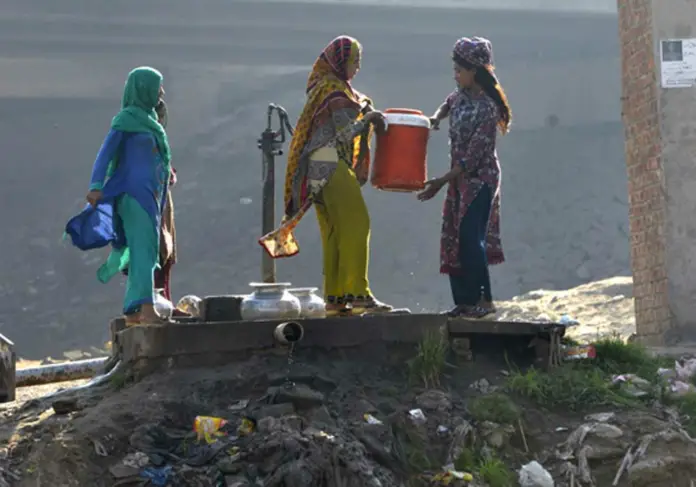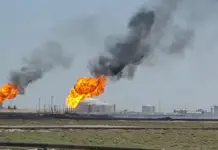Only months after catastrophic floods swamped wide swathes of land throughout Sindh and southern Punjab, the country is headed towards a “massive water shortage” in the next Kharif season, which starts on April 1.
A media report quoting IRSA has stated that the country would experience a “massive water shortage” of between 27 percent and 35 percent.
The Indus River System Authority (IRSA) would be forced to use a contentious three-tier water management process for allocation of shares to provinces in light of the greater shortfall, which would cause rifts among the important coalition partners — PML-N in Punjab and PPP in Sindh.
Sindh and Punjab, two significant players, hold opposing views on the amount of accessible water that is unaccounted for and lost to theft, leakage, evaporation, or absorption by soil or canals and cannot reach farmlands.
Given the massive amounts of water absorbed by the farmlands in the recently ended Rabi season’s super floods, Punjab estimates that system losses or conveyance losses were between 7 and 8 percent. In contrast, Sindh maintains that system losses ranged between 35 and 40 percent, particularly in its territories between the Chashma and Kotri barrages.
The estimations of total water availability for Kharif 2023 could not be finalized at the IRSA technical committee meeting on March 24 primarily due to a significant difference between the federating units on the subject of system losses. On the basis of carryover storage in reservoirs, predicted rain patterns, resulting river flows, and estimated conveyance losses, the water availability estimations are strengthened.
In order to review the water availability projections generated by IRSA’s technical committee and other stakeholders, including Punjab, Sindh, and Wapda, IRSA has now convened a meeting of its advisory committee for Thursday, March 30. All four provincial members, provincial irrigation secretaries, and technical experts from the provinces, the IRSA chairman, and Wapda, will physically attend the advisory group.







